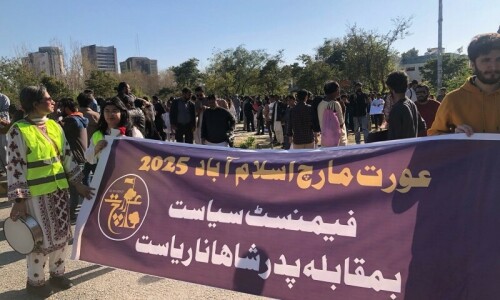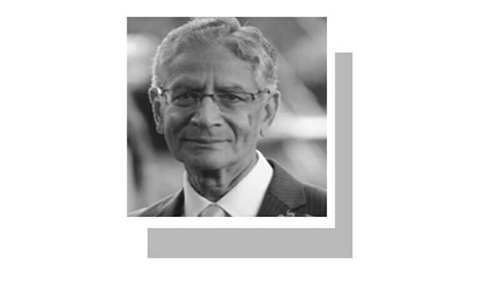KARACHI: The awareness week observed worldwide by the World Health Organisation (WHO) as part of its strategy to ramp up its fight against antibiotic resistance came to an end on Sunday.
The WHO also made public its new multi-country survey, which shows people are confused about this major threat to public health and do not understand how to prevent it from growing.
The world health body said antibiotic resistance happened when bacteria changed and became resistant to the antibiotics used to treat the infections they cause.
Over-use and misuse of antibiotics increased the development of resistant bacteria, and this survey pointed out some of the practices, gaps in understanding and misconceptions contribute to this phenomenon.
It said almost two-thirds (64 per cent) of some 10,000 people, who were surveyed across 12 countries selected from various regions of the world, said they knew antibiotic resistance was an issue that could affect them and their families, but how it affected them and what they could do to address it were not well understood.
“For example,” said a WHO statement, “64pc of respondents believe antibiotics can be used to treat colds and flu, despite the fact that antibiotics have no impact on viruses. Close to one-third (32pc) of people surveyed believe they should stop taking antibiotics when they feel better, rather than completing the prescribed course of treatment.”
“The rise of antibiotic resistance is a global health crisis, and governments now recognise it as one of the greatest challenges for public health today. It is reaching dangerously high levels in all parts of the world,” said the statement. “Antibiotic resistance is compromising our ability to treat infectious diseases and undermining many advances in medicine.”
The global health watchdog said that the campaign was just one of the ways it was working with governments, health authorities and other partners to reduce antibiotic resistance. “One of the biggest health challenges of the 21st century will require global behaviour change by individuals and societies.”
The multi-country survey was conducted in 12 countries representing various regions, including Barbados, China, Egypt, India, Indonesia, Mexico, Nigeria, Russia, Serbia, South Africa, Sudan and Vietnam.
In India, which represented South Asia that includes Pakistan, three-quarters (75pc) of the respondents think, incorrectly, that colds and flu can be treated with antibiotics; and only 58pc know that they should stop taking antibiotics only when they finish the course as directed.
While 75pc agree that antibiotic resistance is one of the biggest problems in the world, 72pc of respondents believe experts will solve the problem before it becomes too serious.
Across the world, three-quarters (76pc) of respondents think that antibiotic resistance happens when the body becomes resistant to antibiotics. In fact bacteria — not humans or animals — become resistant to antibiotics and their spread causes hard-to-treat infections.
Two-thirds (66pc) of respondents believe that individuals are not at risk of a drug-resistant infection if they personally take their antibiotics as prescribed. Nearly half (44pc) of the people surveyed think antibiotic resistance is only a problem for people who take antibiotics regularly. In fact, anyone, of any age, in any country can get an antibiotic-resistant infection.
More than half (57pc) of the respondents feel there is not much they can do to stop antibiotic resistance, while nearly two-thirds (64pc) believe medical experts will solve the problem before it becomes too serious.
Another key finding of the survey was that almost three-quarters (73pc) of respondents say farmers should give fewer antibiotics to food-producing animals.
To address this growing problem, a global action plan to tackle antimicrobial resistance was endorsed at the World Health Assembly in May 2015. One of the plan’s five objectives is to improve awareness and understanding of antibiotic resistance through effective communication, education and training.
Published in Dawn, November 23rd, 2015










































